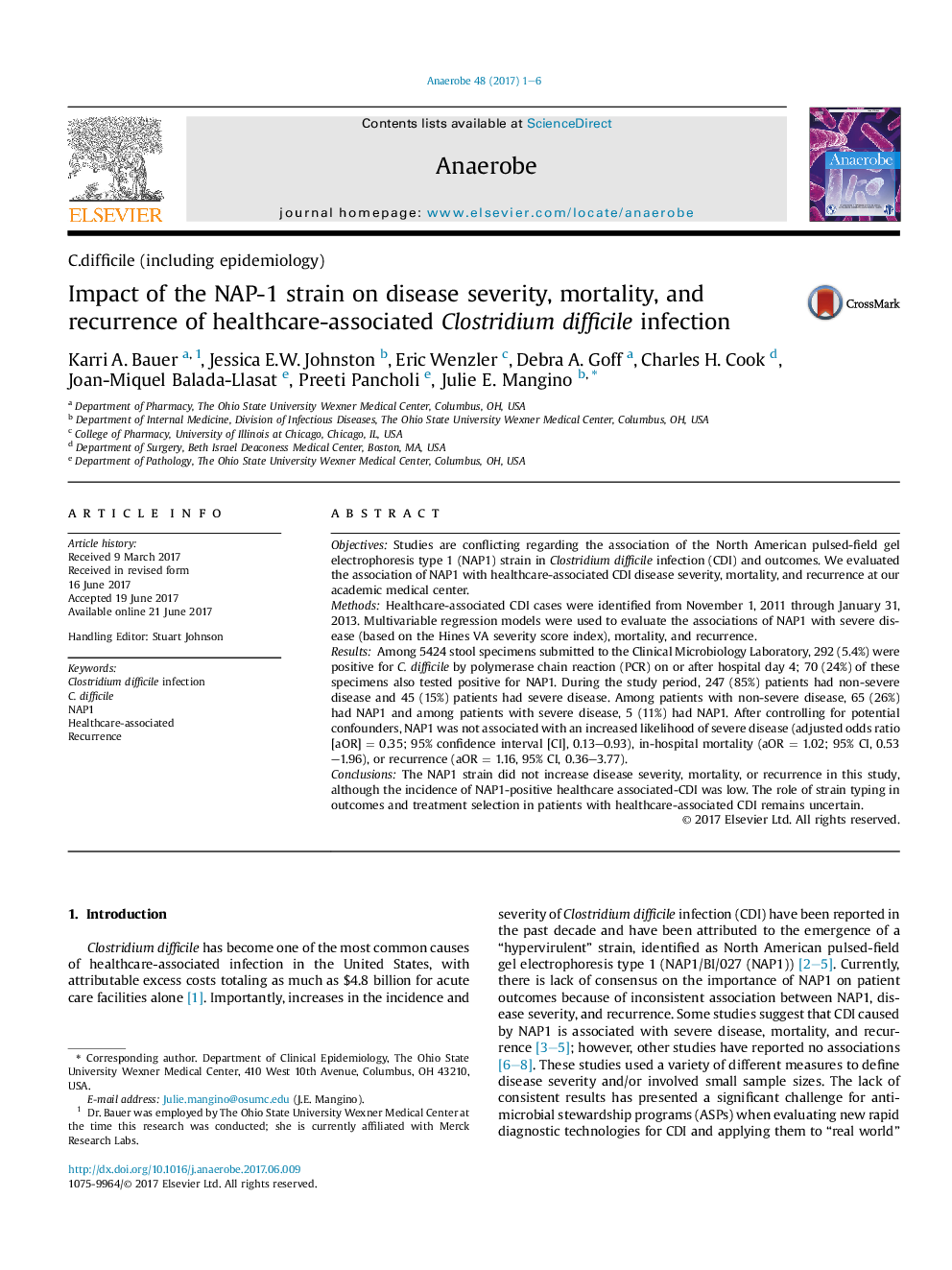| Article ID | Journal | Published Year | Pages | File Type |
|---|---|---|---|---|
| 5671346 | Anaerobe | 2017 | 6 Pages |
â¢Studies evaluating the association of the NAP1 strain of C. difficile and clinical outcomes are conflicting.â¢We evaluated the association of NAP1 with healthcare-associated CDI disease severity, mortality, and recurrence.â¢Among patients with non-severe CDI, 65 (26%) had NAP1 and among patients with severe disease, 5 (11%) had NAP1.â¢NAP1 was not associated with an increased likelihood of severe disease, in-hospital mortality, or recurrence.
ObjectivesStudies are conflicting regarding the association of the North American pulsed-field gel electrophoresis type 1 (NAP1) strain in Clostridium difficile infection (CDI) and outcomes. We evaluated the association of NAP1 with healthcare-associated CDI disease severity, mortality, and recurrence at our academic medical center.MethodsHealthcare-associated CDI cases were identified from November 1, 2011 through January 31, 2013. Multivariable regression models were used to evaluate the associations of NAP1 with severe disease (based on the Hines VA severity score index), mortality, and recurrence.ResultsAmong 5424 stool specimens submitted to the Clinical Microbiology Laboratory, 292 (5.4%) were positive for C. difficile by polymerase chain reaction (PCR) on or after hospital day 4; 70 (24%) of these specimens also tested positive for NAP1. During the study period, 247 (85%) patients had non-severe disease and 45 (15%) patients had severe disease. Among patients with non-severe disease, 65 (26%) had NAP1 and among patients with severe disease, 5 (11%) had NAP1. After controlling for potential confounders, NAP1 was not associated with an increased likelihood of severe disease (adjusted odds ratio [aOR] = 0.35; 95% confidence interval [CI], 0.13-0.93), in-hospital mortality (aOR = 1.02; 95% CI, 0.53-1.96), or recurrence (aOR = 1.16, 95% CI, 0.36-3.77).ConclusionsThe NAP1 strain did not increase disease severity, mortality, or recurrence in this study, although the incidence of NAP1-positive healthcare associated-CDI was low. The role of strain typing in outcomes and treatment selection in patients with healthcare-associated CDI remains uncertain.
